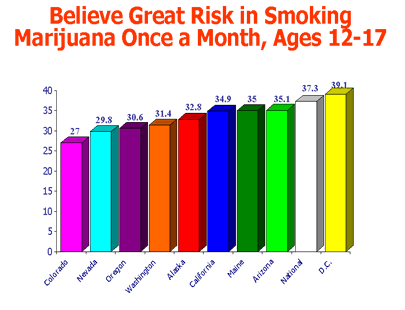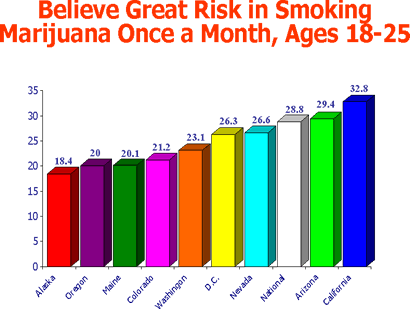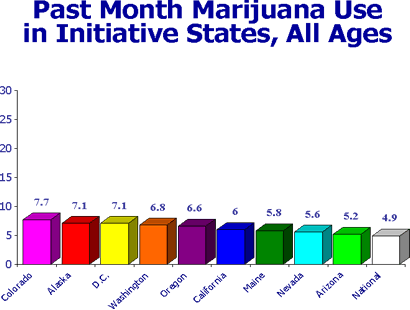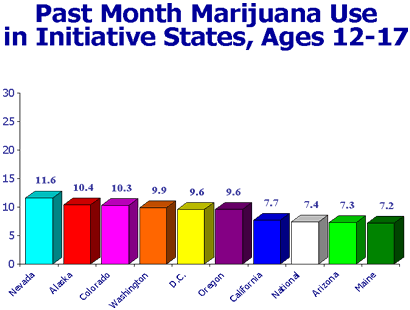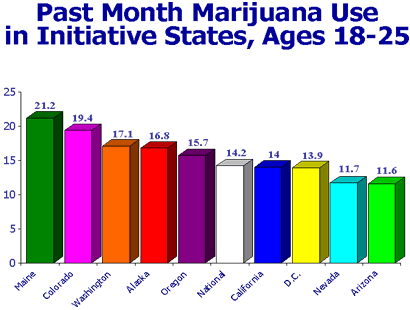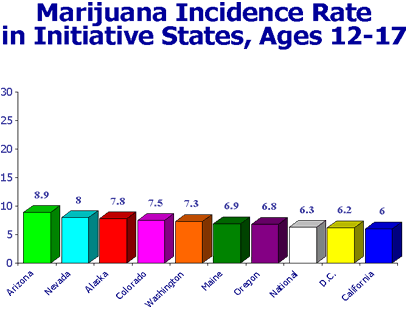Drug Abuse Update Online

Current
Update
Marijuana, Other Drug Use Higher in Most Initiative States
California and Arizona were the first two states to legalize marijuana as medicine via state ballot initiatives in 1996. Alaska, Colorado, the District of Columbia, Nevada, Oregon, and Washington passed similar initiatives in 1998; Maine passed one in 1999. (For various reasons, Arizona reconfirmed its initiative in 1998; Colorado and Nevada did so in 2000.)
Ignoring nearly a century of Food and Drug Administration law in which scientists and physicians, based on careful research, decide which medicines are safe and effective, the drug-legalization movement that sponsored the medical marijuana initiatives took the case directly to voters who are not qualified to make such decisions.
This action is political, not scientific. It has had a significant impact in escalating marijuana and other drug use in the affected states, particularly among adolescents. If marijuana is medicine, they reason, how can it hurt you? Consequently, perception of harm is lower in most initiative states, compared to the national average, and use of marijuana – and other drugs – is higher.
Nationwide, the percentage of adolescents reporting past-month use of any illicit drug is 9.9 percent. Here are the percentages in initiative states in descending order:
| Nevada | 13.9% |
| Alaska | 12.5% |
| Washington | 12.3% |
| Colorado | 11.8% |
| Oregon | 10.7% |
| California | 10.6% |
| Arizona | 10.3% |
| Maine | 10.3% |
| D.C. | 9.9% |
The following graphs show marijuana perception of harm and past-month marijuana use in initiative states compared to the nation for 1) all ages, 2) ages 12-17, and 3) ages 18-25.
Source: 1999 National Household Survey on Drug Abuse
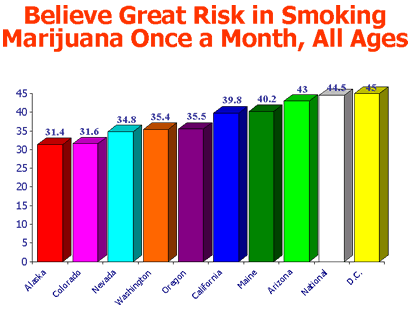
About • Site Map • Privacy
© Copyright 2001 National Families in Action. All rights reserved.
Questions? Write to nfia@nationalfamilies.org.
